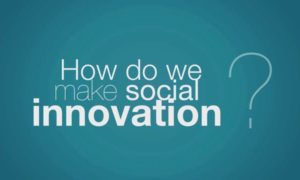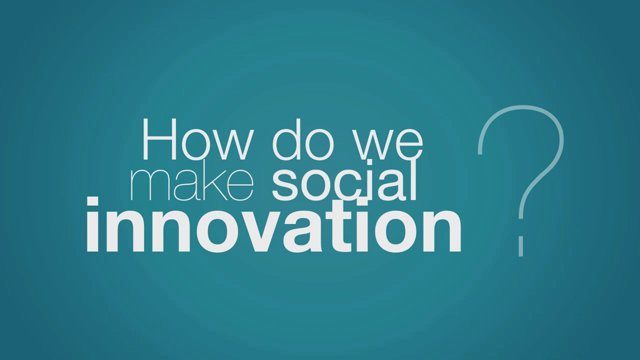Do you believe you possess the power to change the what-ifs into why-not’s?
There’s no doubt about it!
With the vast diversity of ideas, you reel in a few dollars and think you can revamp the social landscape.
Not until you rediscover social innovation.
For more than a decade, we’ve hailed the terms “innovation” and “social entrepreneurship”. Along comes the idea of “social innovation” that has been appended to hundreds of articles, conferences, and job titles over the last few years. Unless the programs we create under the label of social innovation are more than just a fashionable rebranding of traditional philanthropic activities, and are sustainable on a large-scale, we are deceiving ourselves. It’s essential we develop a strong perspective on interventions that are deemed to address societal challenges.
So let’s be honest here! Everybody is not a change-maker, and after years of growing businesses and sectors, it becomes rather complex for even the greatest entrepreneurs and smartest organizations to solve society’s most vexing problems.
So what should we do to capture the real essence of social innovation? Nothing, but simply rediscovering what it really is!
Put simply, social innovation is a novel solution (products, services and models) to a social problem that is more efficient, effective and sustainable. Social innovation creates new social relationships and collaborations i.e. Innovation that enhances society’s capacity to act!
From government and activist organizations through to businesses and foundations, we require radical thinkers and doers to “CONVENE”.
Why?
In developing parts of the world, small organizations with similar missions rarely think about consolidation to increase efficiency and effectiveness. They mostly find themselves against one another in the competition for funds. The powerful solutions of literacy, poverty alleviation and tons of other social evils are being used by small organizations in some parts of the country (or globe), but there are few breakthrough ideas to ensure widespread adoption of these programs.
Are social innovators offering the best hope for Pakistan?
Spurred by start-up events, incubation services and competitions, social innovation is catching on across Pakistan.
“We have to focus on the poor; these social businesses are not a charity, we are doing this for purely economic reasons” – said, Azhar Rizvi the Founding Vice Chairman of MIT Enterprise Forum of Pakistan for Aurora. In that article, Faraz Khan, CEO of SEED Ventures (an incubator) highlights the need for proper guidance and monitoring to spur the intelligent use of funds acquired by the new and existing entrepreneurs.
A recent report by i-genius (an initiative supporting social entrepreneurs’ worldwide) highlights that a developing country like Pakistan is a fertile ground for new ideas. Positive social reforms are progressively rising as there is significant untapped potential for social business.
With Pakistan’s external narrative characterized by lack of security, lack of access to education, lack of women’s rights and much more, there are glimpses of hope in the form of individuals who are tirelessly working to fill the gaps and create a change in community. Acumen Pakistan recently published a list of four emerging leaders who are relentlessly working to build the future of the country by solving social problems.
Pakistani Brains Taking their Country a Step Ahead …
On the landscape of social innovation local business leaders are ready to buy the ideas because of investment concerns with tackling longstanding social issues. Scores of young men and women are creating a new and promising wave of social innovation.
The list is growing with examples such as Pharmagen Water, an organization that offers affordable clean and purified drinking water to the poor communities, SRE Solutions, a business that is harnessing solar energy as a viable substitute to kerosene oil based lanterns for off-grid customers, and Ghosla , a low cost-engineering and construction enterprise geared toward providing greener insulation housing solutions for earthquake victims.
In addition, many other initiatives are incentivizing the country beyond crisis management with an aim to think and change Pakistan.
What’s the Way Forward?
Since most of society’s problems need no reinventing, but only require that we find new approaches and tools to funding, scaling and sustaining them, we need to understand and vigorously address those barriers that keep us from turning the great ideas into transformational changes.
Our prime focus should be to harness the potential of partnership between corporations and social entrepreneurs. To reach the wider cross-section of the society, we need to increase exposure of business leaders and civil society by ensuring that issues are actually shared. The need for business leaders, public officials, civil leaders and social entrepreneurs to come together has grown more than ever before. Only solid partnerships can encourage exploring new approaches that best combine social vision and public purpose with business acumen.
Social entrepreneurs must get not only financial but also non-financial support such as skills training development, mentoring, and implementation guidance, meaning by, they should increasingly pitch for non-financial resources alongside access to networks and markets. It’s important to understand that funding is not the sole factor to tackle social problems. These support mechanisms when combined with strong policy frameworks can result in creating and sustaining a social innovation ecosystem for the long-term.
Complementing the financial front, Kulsoom Lakhani says that investors should place initial seed funding in business school incubators. When that is done for a predefined growth cycle, the high-potential social enterprises can rapidly become investor-ready.
Also, significant inclusion across the socio-economic spectrum should be implemented involving the people from various spectrums of society including those who are directly impacted by the social issues can result in massive levels of engagement to find solutions to problems. To maximize the impact, true solidarity with women, historically disadvantaged groups, people with disabilities and low-income people must be visible to enhance engagement beyond their status as beneficiaries.
The idea is to bring inclusiveness in practice rather than keeping it in theory. Should business-social partnerships be rigorously implemented, industry could move millions into fostering social innovation.
It’s inclusive development that can convert economic expansion into human well-being. When benefits of economic growth in combination with social progress reach a broad base, improvements in the life of the most vulnerable bands of society are inevitable.
Are we serious about rediscovering social innovation for profiting Pakistan? Let’s hear those ideas!


